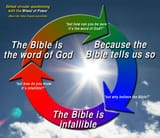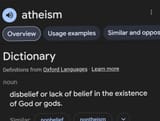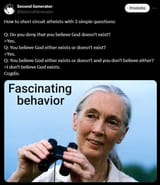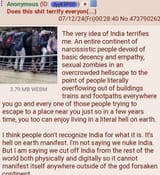>>513674929
this is the problem, if morality is just a tool, then "should" and "obligation" are illusions. there's no reason to choose the tool of flourishing over the tool of destruction, only preference.
you might prefer a world where beings reach cognitive potential, but a nihlist who prefers a world of suffering has an equally valid position.
without truth, we can't call their preference wrong, only different.
>UPB
it's an attempt to find objective morality without God, but most philosophers see it as a restatement of the problem, not a solution. it defines "preferable" but can't ground why we ought to prefer it, which is the very question we're asking.
you're right that a long-term ecological view of flourishing is a more robust and intelligent goal than short-term hedonism, but that's still within the realm of sophisticated preference, the problem of "ought" remains.
let's use your own framework: you say your ethics is based on increasing mental potentials. that's a great axiom (starting assumption), but an axiom is by definition unproven, it's chosen.
the question is is choosing that axiom just a personal or evolutionary whim, or is it reflecting a true fact about the nature of reality and value? does consciousness "ought" to flourish?
that's the mystery you said you hate. the desire for a clear answer to that is the desire for moral realism, for morality to be about truth, not just tools.
on UPB it tries to argue that certain behaviors are logically inconsistent if universalized. it's a modern take on kantian duty, but it still ultimately rests on the unproven axiom that we ought to be logically consistent and that life ought to be preferred. it's a system built on sand, without a theistic or other metaphysical grounding, which you actually have, as a panentheist if that consciousness isn't just a passive aggregate but has a telos.





























































